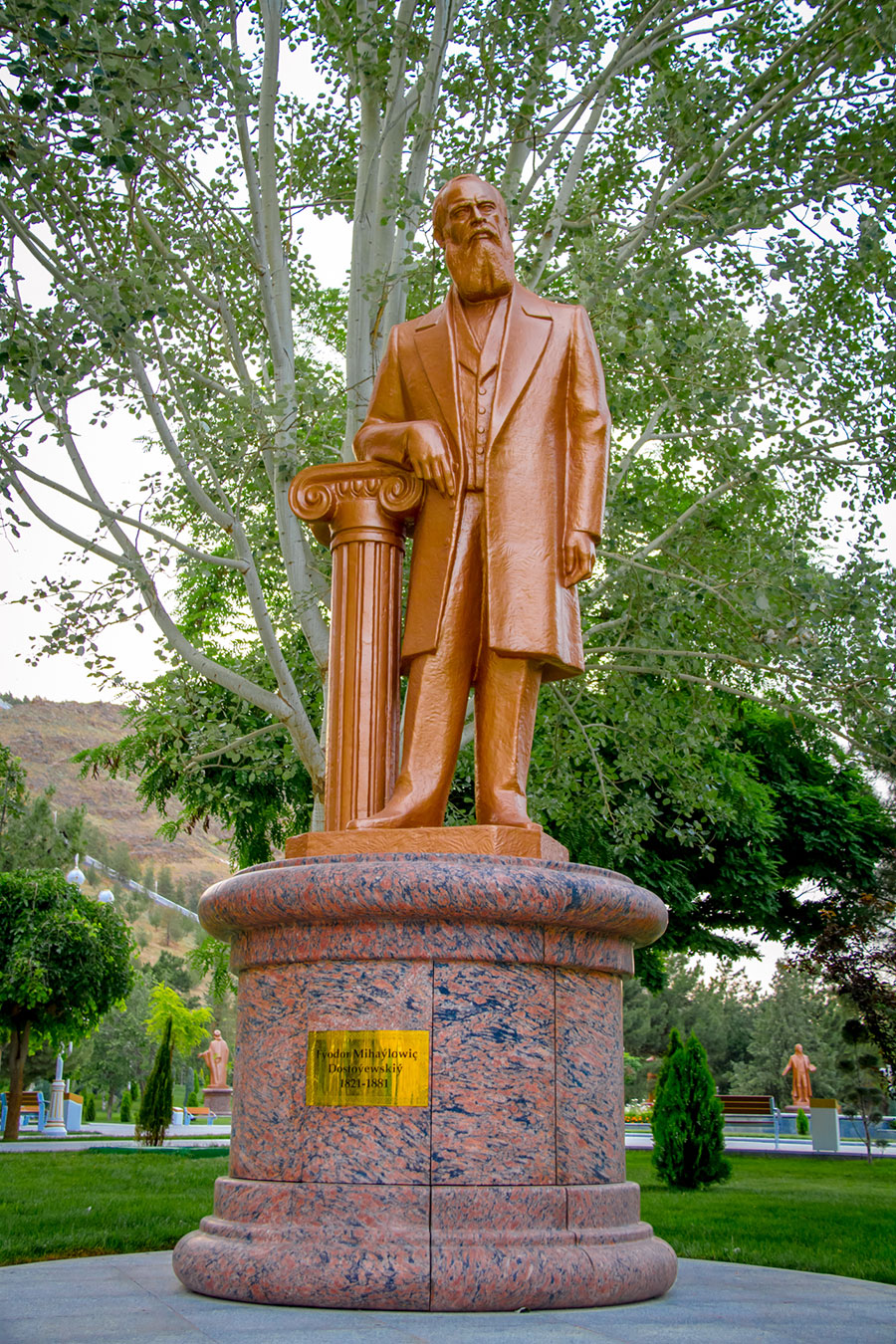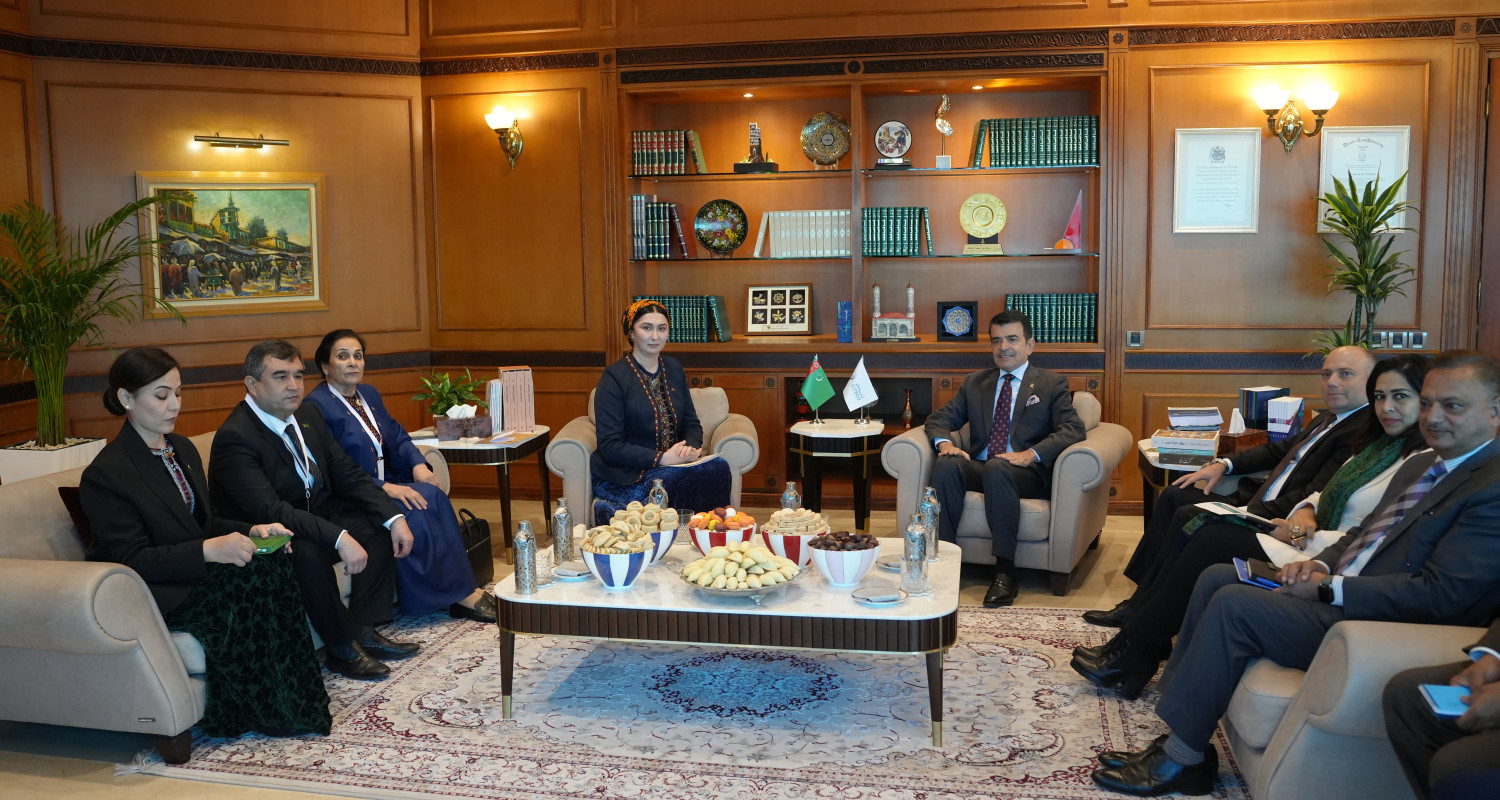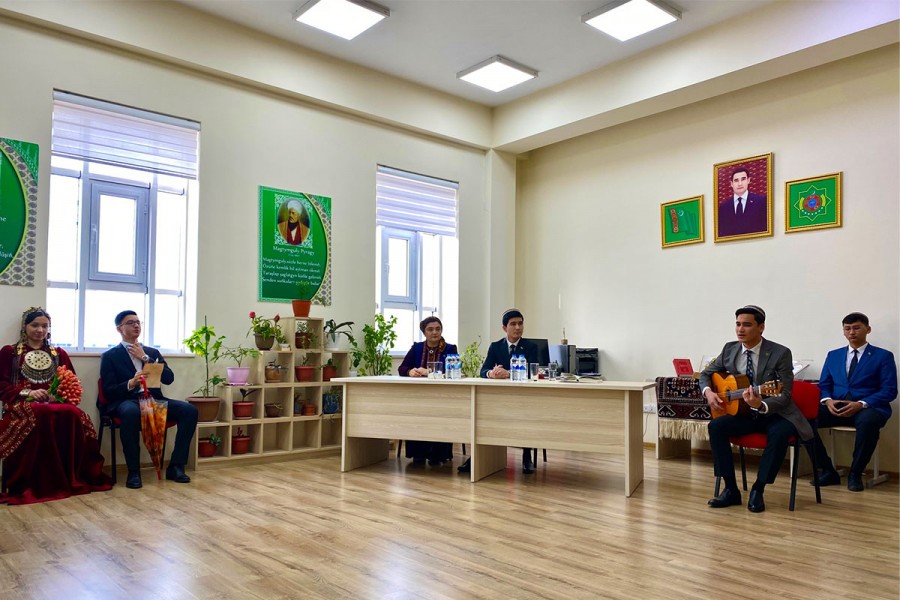This year, in a solemn atmosphere to mark the 300th anniversary of the birth of the classic of Turkmen literature Magtymguly Fragi and in his honour, a new cultural and park complex of the capital was opened in the foothills of the Kopetdag. It is symbolic that this large-scale facility, in addition to the majestic monument to Magtymguly, includes an alley of famous poets and philosophers from different countries and epochs, which emphasises its significance in the context of friendship between peoples and the unity of the cultural heritage of mankind.
On the territory of the park complex, there are 24 monuments to world-famous writers and poets from different countries of the world. The editors of the «Golden Age» considered it right, if possible, to acquaint the reader, especially children and adolescents, with the life and work of outstanding personalities whose monuments adorn the Magtymguly Alley. This is also important because some of the geniuses of their time presented here visited Turkmenistan. «GA», publishing information about them, does not in any way claim to fully cover the materials about this or that person, especially since not much information has been preserved about many of them after a long period of time.
Our short story today is about the classic of world and Russian literature, one of the most widely read writers in the world, Fyodor Mikhailovich Dostoevsky.
Fyodor Mikhailovich Dostoevsky was born on the 30th of October, 1821 in Moscow. In September 1834, Fyodor and his brother Mikhail entered the Chermak Boarding School on Basmannaya Street, which was considered one of the best private educational institutions in Moscow.
The daily routine at the school was strict, students came home only on weekends. Fyodor was a serious, thoughtful boy. He was little interested in games, constantly read books, and spent his free time with older students. He was fond of reading books by Homer, Balzac, Hugo, Goethe, Hoffmann, Schiller, Shakespeare, Byron, Lermontov, Gogol, Pushkin.
The home life of Dostoevsky contributed to the development of imagination and curiosity. Later, in his memoirs, the writer called his parents «the best, advanced people». At family evenings in the living room, they read Karamzin, Derzhavin, Zhukovsky, and Pushkin aloud.
In 1843, Dostoevsky was enrolled as a field engineer-second lieutenant in the military engineering and technical university, but a year later, having decided to devote himself entirely to literature, he resigned and was discharged from military service.
While still a student, Dostoevsky worked on the dramas «Mary Stuart» and «Boris Godunov».
On the 6th of February, 1857, Dostoevsky married Maria Isaeva in the Russian Orthodox Church in Kuznetsk. At the same time, he actively collaborated with the magazines «Time» and «Epoch», which marked the beginning of his journalistic activity.
In the summer of 1862, Dostoevsky made his first trip abroad, visiting Germany, France, England, Switzerland, Italy and Austria.
The writer's early works, such as the story «Notes from the House of the Dead», contributed to the emergence of the genre of psychological prose.
The writer's most significant works include the novels «Crime and Punishment», «The Idiot», «Demons», and «The Adolescent». The writer's lifelong fame reached its apogee after the publication of the novel «The Brothers Karamazov».
Many of the writer's famous works have been filmed and staged. The writer's work has influenced world literature, in particular the work of a number of Nobel Prize winners in literature, philosophers Friedrich Nietzsche and Jean-Paul Sartre.
Fyodor Mikhailovich Dostoevsky died on the 28th of January, 1881. After the news of his death, Dostoevsky's apartment began to fill with crowds of people who came to say goodbye to the great writer. There were many young people among those saying goodbye.
Articles and translations about Dostoevsky's literary legacy, his life and work are regularly published in newspapers and magazines in Turkmenistan.
There are numerous monuments and memorial plaques erected in his honour. Streets, parks, squares and educational institutions are named after him.








